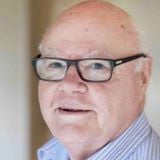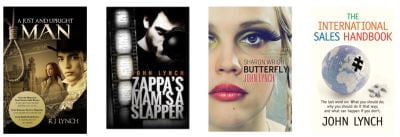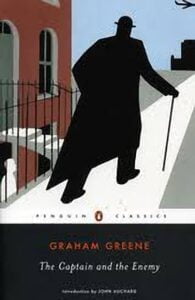British indie author John Lynch generously shares the best writing advice he ever received, learned at the outset of his self-publishing journey: the importance of learning how to write succinctly.
33 years ago I received the best writing lesson I’ve ever been given – and it didn’t cost me a penny. In fact, I made money out of it.
I had sent my first ever magazine article to Good Housekeeping. I can't remember the exact length – 1,000 words is probably about right – but I do know I'd worked on it and worked on it because everything I read and heard said it had to be as tight as possible – not a single superfluous word – and I was confident I'd achieved that.
It came back with a letter (I didn't realise at the time how lucky I was) that said, “We'd like to publish your article but we need you to shorten it to about 600 words”. I thought, That’s just ridiculous. That article is as short as the great writer that I know I am (and my wife, my mother and both maiden aunts agreed) is capable of making it. This is just another way of turning me down. The letter continued, “I'm attaching your piece; I've made some notes on places and ways you could shorten it”. (As I say, I REALLY didn't know how lucky I was). I looked at her notes. I thought, “Huh. Oh, well. But…I suppose if you…Hmmm.”
When I’d finished looking at them and thinking about them, I had a simpler thought: “Eee, ya bugger” (it’s a Geordie expression. And I’m a Geordie). I sat down at my typewriter and rewrote the article. 600 words. They published it. They even sent me a cheque. That editor had taught me the most important thing I needed to learn and I'd bless her name if I could only remember what it was.
Lesson Learned – And Shared
Come forward 25 years and a friend of mine was struggling with her MSc dissertation. She’d done her research and written her paper but try as she might she couldn’t get it down to the maximum number of words demanded by the university. I offered to help. The offer was made diffidently, because I knew my friend, and she responded as I’d expected. Every word was vital. If I changed a thing it would alter the tone and meaning and that was not to be countenanced.
Eventually she agreed to visit for the weekend, bringing her dissertation as a Word file. We sat side-by-side at my computer and went through it sentence by sentence. With each sentence I rewrote I said, “Does that still say exactly what you want to say?” “Yes,” she said, at first aggressively but calming down as she realised that one could remove all those superfluous words without changing the meaning in the slightest.
At the end of two days, the script was 40% shorter than it had been and now well within the University’s limit. “Brilliant,” she said. “Now I can put some more in.” Yes. Well. How to deal with that? I said, “Umm. The whole thing seems pretty complete to me. Is there actually anything else meaningful to say?”
“No. But they want it longer.”
Maximum Word Count Doesn't Mean Ideal Word Count
So then I had to explain that maximum word count and desired word count are not the same thing and that you should use the minimum number of words needed to say what you want to say – and then stop.
Brevity does not become easier as the decades roll by – or, at least, not for me. Graham Greene has been one of my favourite authors for fifty years and the book I most admire is The Captain and the Enemy. It was Greene’s last novel and it shows everything he had learned in the fifty-nine years since publication of The Man Within. There isn’t a single word that should not be there.
Emulating Greene is a dream I will never fulfil but I try. This morning I wrote one thousand words (I have another thousand to do when I finish writing this) and, as always, I went back over what I had written, rewriting and switching words around to get the word count as low as I could. Simple things, like changing “if you didn’t know there was a house behind the high, thick hedge, you’d be unlikely to spot it from the road” to “if you didn’t know it was there you’d be unlikely to spot the house behind the hedge”. Twenty-two words to seventeen – a 23% reduction. I know, however, that before I’m done this morning’s thousand words will come down to no more than six hundred and the six hundred will be more readable, and say the same thing, as the one thousand.
It isn’t all due to the Good Housekeeping editor – I’ve put in a huge amount of work to get to where I am – but it started with her. I owe her an unpayable debt.
OVER TO YOU
- Is less really more? Or is verbosity ever justified?
- What's the best lesson you've ever been given in your writing career, and who taught it to you?
- Join the conversation via the comments box!
“#Authors: learn from the best #writing lesson ever – via @jlynchauthor for #AuthorALLi: https://selfpublishingadvice.org/brevity/ #selfpub”









You can count total words of your blog by using character Counter.
Thank you John. A valuable lesson, particularly for those of us who find it hard to be succinct!
At school and college I never had problems writing up to the required word counts for projects. I had to edit my work to bring it down and still do as a writer of full-length novels.
I know many writers hate the editing process, but I love it! I can’t wait to get back to my manuscript and chisel away until it becomes what it should be.
Your advice seems to be good, It wold be kind of you if you could share some of your sample works on how to shorten the word count that is how to be precise.
Glad to discover you, John. I have a different problem. When I write novels I have to add detail, not cut it when editing. Now I’m back writing short stories I think I might need your advice.
Love the North East -started our married life there.
I always had the opposite issue, as someone who started in short fiction and poetry, it feels very tiring to write more than 2,000 words for a single story. I remember struggling to write the previous drafts.
Eventually my room mate suggesting I write as the writer I truly am won the day. So I wrote it as a story collection that built toward a novella. The draft could not have been easier.
I envy people that can ramble at times.
I love being edited. Watching all the dead wood slip away beneath my fingers. Mainly because I go off on a tangent. Write far too many unnecessary words which I did at the outset of my career. Succinct and to the point is my policy now.
My favourite piece of advice given to me as an author is to let a book ‘rest’ before it is finished. Then bring the book out again, and look at it with fresh eyes.
[…] Why Brevity is the Best Writing Lesson Ever – by John Lynch […]
I agree with John’s lesson on brevity. But it appears to be an excellent lesson that falls on deaf ears. The last few years I’ve been turned cured of the new ‘genre’ of writers, who, in their hearts believe that if they can write 700 pages…they can write 900 pages and that we’ll be all the better for it.
Holy crap!
I had a fabulous book by William Strunk with E. B. White, ‘The Elements of Style’. Absolutely fabulous.
“Make every word tell”.
“Omit needless words”; and so on.
But judging by the deluge of fictional sludge cascading from bookshop shelves by ‘beautiful people’ who claim to be ‘writers’, it is apparent they have avoided Will Strunks book with the same assiduousness that I avoid these new ‘authors’.
However, thanks for the reminder John. Maybe one day I’ll endeavour to resurrect my scribbling. My, nearly six years of writing, was erased from my computer by a sociopath who made torment an art.
It’s been a bitter pill to swallow.
I also learned to “kill my babies” while writing my essays for the university (Egyptology studies). Usually I first wrote everything I had researched, and then cut down to 50% to keep within the word limit. Sure taught me not to fall in love with my own words…
With the novel I have now written I’ve been wordier – the story runs on three levels, so this is a long book.. Interestingly enough on Smashwords site they say on their site that longer e-books sell better… (Here’s hoping…)
I so enjoyed reading about your experience, John. For me, it was, and still is, almost 50 years later, the phrase “omit needless words” out of Strunk & White, that rings in my head every time I sit down to excise unnecessary words, phrases, and clauses from any copy so bold as to challenge my claim that I can cut 10-20% out of anything, favorite texts excluded. Glad to hear about other repentant writers.
I am a former journalist, and learned early that less is more when it comes to designated space for newspaper articles. Helpful suggestions!
To keep track of the word and character count, I use this http://wordcounttools.com tool and it works like a charm.
Well written John – good advice that stood the test of time.
I read another interesting Buffer article this month about the relationship between article length and the volume of social shares.
Articles between 501-1,000 and 1,501-2,000 resulted in the same volume of shares.
But articles between 1,001 and 1,500 were shared ~40% less.
So if you want to increase the share potential of an article and you’re in that mid-range zone… it’s best to tighten up your writing to get it below 1,000 — or beef it up with more engaging (tightly written!) content.
A great article. I think my most important lessons are ….
1) it’s horrible being edited but it does make it better – as an editor myself, I didn’t quite realise how horrible it is to be edited until a very good editor worked on my first book. Ugh. But that improved my editing as well as my writing, so win-win.
2) Listen to reader feedback if it’s constructive. A reader pointed out a lack in one of my books so I went off, wrote a bit to fill the gap, sent them a free copy, and all was good (and I got a very good re-review out of it).
I agree about Robert Harris, Alison. I’m ashamed to say I gave one of his books a 3 star review and said, “Written by anyone else, this would have got 4 stars”. That was a reflection of my admiration for his style but a damn funny way to review a book.
You can count total word of your blog by using character Counter.
Very practical advice, John. Am a strong machete wielder myself. Another good author for succinct style is Robert Harris.
Tweeting hones word cutting, too!
The best lesson I’ve ever been taught is the perennial question, “How long should a book be?”
The answer that I found was always, “As long as it takes to tell the story and not one word more.” And that is what I did in my early editing, eliminating unnecessary verbage to make the message more explicit. To write succinctly while still maintaining meaning and continuing the story line should be a main goal with a fiction writer.
Nice post thanks